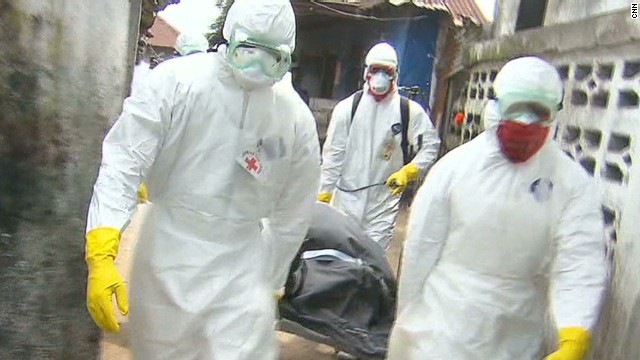Not getting enough sleep impairs your judgment, making it harder to do your job.
All-night study sessions, important business deals, new babies — most people will experience a taste of sleep deprivation at some point in life. While the occasional lack of sleep may not seem like a big deal, the impact of sleep deprivation can be intense and its effects can linger. In extreme circumstances, sleep deprivation can ultimately lead to death.
“As a society, as families and individuals, we have not yet fully appreciated the importance of sleep,” says Terry Cralle, RN, a certified clinical sleep educator in Fairfax, Virginia. “Sleep, along with diet and exercise, constitutes the very foundation of good health.” In fact, she says, the three are so interconnected that each needs to be a priority.
Chronic poor sleep puts us at increased risk for serious medical conditions, such as obesity, heart disease, and diabetes. During sleep, our bodies secrete hormones that help control appetite, metabolism, and glucose processing. Poor sleep can lead to an increase in the body’s production of cortisol, also known as the stress hormone. In addition, skimping on sleep seems to throw other body hormones out of whack. Less insulin is released after you eat, and this along with the increased cortisol may lead to too much glucose in the bloodstream and thus an increased risk for type 2 diabetes.
But how much sleep do I really need? Everyone is different, but according to the Centers for Disease Control and Prevention (CDC), adults should get between 7 and 9 hours of sleep each night. (1) And contrary to popular belief, sleeping an extra hour or two on the weekends can not make up for the lost sleep you may be experiencing over the course of a busy week. It could also throw off your internal body clock and possibly lead to Sunday night insomnia. Sticking to a consistent sleep schedule is the best way to regulate the body’s clock.
While pulling an all-nighter (or longer) might seem like a feat worth celebrating, here’s a look at what you’re putting your body through.
At 24 Hours: Impaired Coordination, Memory, and Judgment
Scott Kelley, a 10-year Army veteran, knows about sleep deprivation. With multiple deployments under his belt, Kelley has had many instances of being awake longer than 24 hours in the field. “There were several occasions in Afghanistan and Iraq where I had just finished up 15 to 20 hours of working, got back to my hooch, and then either a rocket attack would come in or a critical mission would be called,” he says.
Kelley’s military training and adrenaline-filled environment seemed enough to keep him focused and alert at this early stage of sleep deprivation. But what happens in more normal circumstances is surprising. The consequences of sleep deprivation at 24 hours is comparable to the cognitive impairment of someone with a blood alcohol content of 0.10 percent, according to a study published in the International Journal of Occupational Medicine and Environmental Health. (2) “Judgment is affected, memory is impaired, there is deterioration in decision-making, and a decline in eye-hand coordination,” Cralle says. “You’re more emotional, attention is decreased, hearing is impaired, and there is an increase in your risk of death from a fatal accident.”
At 36 Hours: Physical Health Starts to Be Negatively Impacted
Now your health begins to be at risk. High levels of inflammatory markers are in the bloodstream, says Cralle, which can eventually lead to cardiovascular disease and high blood pressure. Additionally, hormones are affected — your emotions can be all over the place.
Once Kelley reached 36 hours without sleep, his head started buzzing as though he were dehydrated, and he began to lose motivation. His responses were dependent on his training, and in some instances, he functioned on autopilot and lost chunks of time. Once, he was called back to duty just as he was about to go to sleep after 36 hours on the job, he recounted. “After a quick briefing, I grabbed my gear and flew out by helicopter, got dropped off in the middle of nowhere, and hiked out to the FOB [forward operating base]. The next day, we rode back through the most dangerous road in central Afghanistan, but I don’t remember leaving the FOB or hardly anything that happened until I got back to the base.”
At 48 Hours: Microsleeps and Disorientation
Research shows that after two days of no sleep,the body begins compensating by shutting down for microsleeps, episodes that last from half a second to half a minute and are usually followed by a period of disorientation. “The person experiencing a microsleep falls asleep regardless of the activity they are engaged in,” she says. Microsleeps are similar to blackouts, and a person experiencing them is not consciously aware that they’re occurring.
Kelley experienced microsleeps during this phase of sleep deprivation. “Around 48 hours or so, my mind starts to slip into neutral sometimes, and I find myself staring off into the distance if I don’t maintain focus,” he says.
At 72 Hours: Major Cognitive Deficits and Hallucinations
Expect significant deficits in concentration, motivation, perception, and other higher mental processes after many sleepless hours, Cralle says.
“Even simple conversations can be a chore,” notes Kelley. This is when the mind is ripe for hallucinations. Kelley recalled a time he was on guard duty and repeatedly saw someone standing with a rifle in the woods, ready to sneak into camp. Upon closer inspection, he determined he was actually looking at a branch and shadows.
Involuntary Sleep Deprivation: Causes and Symptoms
Not all instances of sleep deprivation are voluntary. Insomnia, sleep apnea, restless legs syndrome, night terrors, sleepwalking, and other problems can affect sleep. See a sleep specialist if you experience any of the following, suggests Cralle:
Excessive daytime sleepiness
Snoring, gasping, or choking during sleep
A restless sensation or jerking in your legs at night
Impaired ability to perform regular daytime activities
Struggling to stay awake when inactive, whether at a traffic light, while watching television, or reading
Needing caffeinated beverages or sugar throughout the day to stay awake
Feeling tired or falling asleep while driving
Needing sleep aids on a regular basis
Source:everydayhealth



















